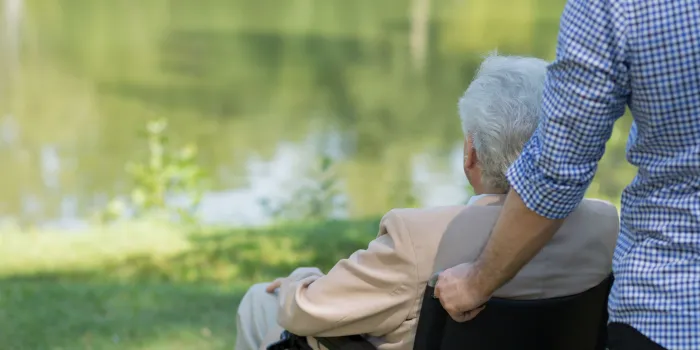Any form of extended caregiving can be taxing. That’s why it’s important for caregivers—and especially ones with a bleeding disorder—to try to ameliorate this stress wherever and whenever possible. “That often starts by simply knowing that it’s OK to ask for help and to take some time for yourself,” says Viki Kind, MA, a clinical bioethicist based in Granada Hills, California, and author of The Caregiver’s Path to Compassionate Decision Making (Greenleaf, 2010). “If you don’t take care of your own needs, you will destroy yourself.”
Follow Kind’s advice on how to care for someone close to you and also take care of yourself:
• Identify your roadblocks. When someone says, “You should just ask for help,” what goes through your head? “Often, we set up barriers before we even seek out additional resources,” says Kind. Think of these obstacles as “resistance statements” and write them down, she says. Then put a “power statement” beside each one to help you get past these roadblocks (see examples below).
• Make a wish list. “Put down all of the things that would help you, whether they be practical, emotional, financial or informational,” says Kind. Then keep the list with you to pull out when someone asks how he or she can help. Some of the things you might include: kitchen cleaning; a call every day to check how I’m doing; a meal once a week—and stay to eat and talk with me.
• Go long distance. Friends and family don’t have to live close by to offer support, says Kind. Family members can listen to doctor appointments on speakerphone, order groceries online or help set up automatic bill payments.
• Think big. Try going outside your immediate family for help. See if a local high school requires students to fulfill community service hours. Contact local resources, such as a nearby Area Agency on Aging, and see if they have ideas.
• Get support. Find a peer support group where you can share your frustrations and talk to others who may be in a similar situation. Live in an isolated area? Online groups where you can get help and information 24/7 are available as well. (See “Find Support,” below.)
• Remember the good stuff. Being a caregiver may sometimes feel like a burden, but it can also give you a sense of purpose and be incredibly meaningful. “There’s a certain joy that comes with just showing up and being there for someone else,” says Kind. “It’s fulfilling on many levels—and you can often develop a richer, deeper relationship because of it.”
What’s Preventing You from Asking for Help?
|
Resistance Statement |
Power Statement |
|
People won’t want to help me. |
I don’t really know this |
|
They won’t know what to |
I can teach them. |
Find Support
Numerous local and national agencies provide outreach and support for caregivers.
National Association of Area Agencies on Aging (n4a) represents 622 Area Agency on Aging programs across the country: n4a.org
Well Spouse Association (WSA) hosts local support groups and offers online support through the WSA Forum anytime; there’s also a Facebook community page: wellspouse.org
Family Caregiver Alliance provides resources and support, such as fact sheets, webinars and strategies for managing legal issues and long-term care: caregiver.org
Caregiver Action Network serves a broad spectrum of family caregivers, from parents of children with special needs to adult children caring for their own parents: caregiveraction.org

